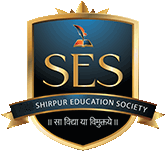
About RCPIT
R. C. Patel Institute of Technology, Shirpur (RCPIT) is a premier Autonomous Institute dedicated to developing skilled, ethical, and industry-ready engineers. Established in 2001 by the Shirpur Education Society under the visionary leadership of Shri Amrishbhai R. Patel, RCPIT was founded with a transformative mission: to provide high-quality technical education in a region historically underserved by such opportunities.
Accredited with an 'A' grade by NAAC and affiliated with Dr. Babasaheb Ambedkar Technological University, Lonere, RCPIT has consistently set academic benchmarks. It is also industrially accredited by Tata Consultancy Services (TCS)—a recognition that reflects the institute’s commitment to aligning its curriculum and training with industry standards and expectations. Its autonomous curriculum, designed in accordance with the National Education Policy (NEP), emphasizes flexibility, relevance, and innovation to meet the demands of a rapidly evolving global landscape.
The institute fosters experiential learning through cutting-edge infrastructure, including IIT Bombay Virtual Labs, high-performance computing facilities, and domain-specific laboratories. From the third semester onward, students engage in hands-on projects, internships, and a choice of electives that deepen their technical expertise and problem-solving skills.
Over 50% of RCPIT’s faculty members hold doctoral degrees, with an additional 45% about to complete their PhDs. This strong academic foundation fosters a vibrant research environment that encourages interdisciplinary collaboration and scholarly publication. Complementing this, the institute’s unique tutor-mentor system offers personalized academic and emotional support, ensuring holistic development for students throughout their educational journey.
RCPIT also places strong emphasis on career readiness. With a network of over 150 recruiting companies, structured industry internships, and a proven placement record, students gain both practical experience and employment opportunities. The institute offers major-minor degree flexibility, soft skills development programs, and international language training in English, German, and Japanese. Students also have free access to global coding platforms and are supported in innovation and entrepreneurship through dedicated startup cells and incubation support.
RCPIT also takes pride in its strong international alumni network, with 18% of its graduates contributing to industries and research across the globe—a testament to the institute’s global outlook and impactful education.
RCPIT is more than an institution — it’s a launchpad for leadership, innovation, and lifelong learning. Here, excellence is not just achieved — it is engineered.
